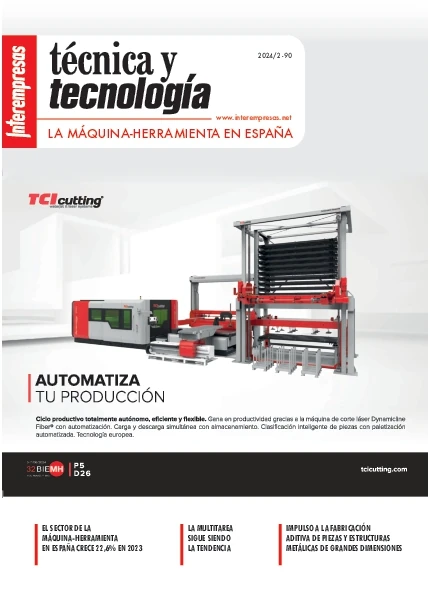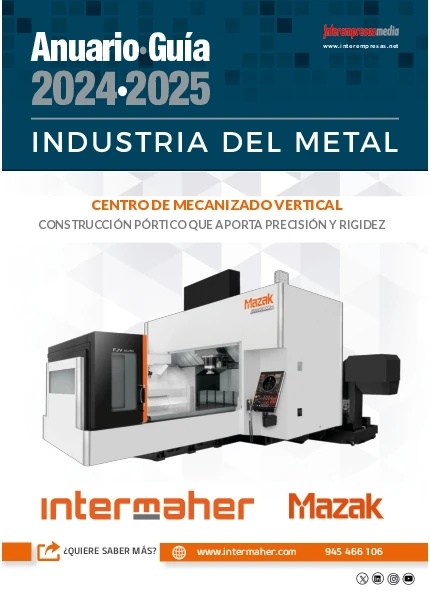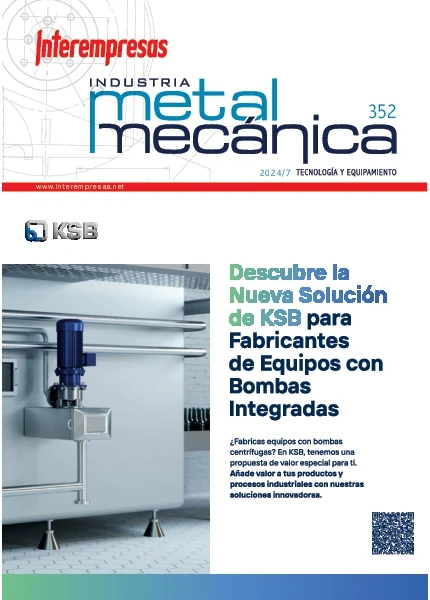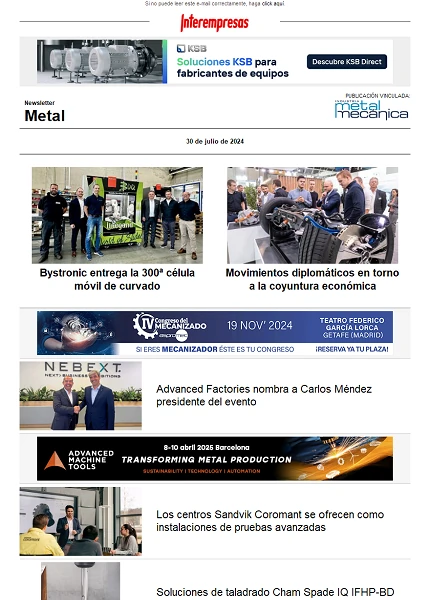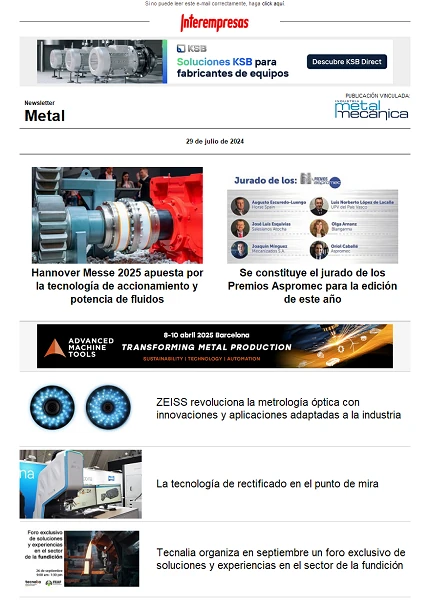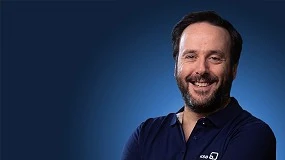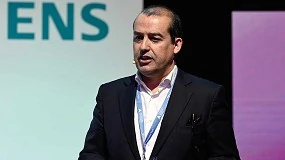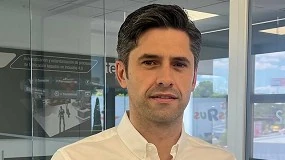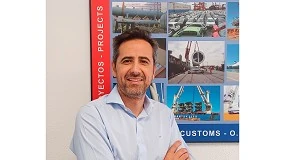Antonio M. Echavarren, award for research 2010 Feique and gold medal of the RSEQ
on January 21, 2011
The headquarters of the Regional Confederation of business organizations (Croem) in Murcia, hosted on 15 November the official celebration of the eighth edition of the day in the chemistry, organized by the Forum, chemistry and society and the Professional Association and the Association of chemists of Murcia. In the course of the celebration - framework of scientific, academic and professional recognition awards which aims to assess and give support to professionals in the chemical sector in general - was granted to Professor Antonio M. Echavarren the Medal of gold of the Royal Spanish society of chemistry and the research award of the Federation business of the industry chemistry Española (Feique), endowed with 10,000 euros.
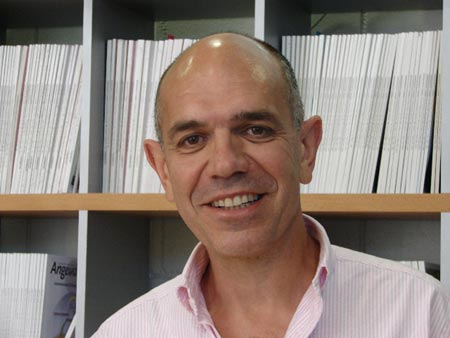
In his speech of reception of the Feique Prize for research and medal in gold of the Royal Society Spanish of chemistry, paraphrased to Henry Hill in 'goodfellas' ('one of our'), the film by Martin Scorsese. Why? What attract you, chemistry?
I think that it is not so surprising. I remember that at the College where I studied all the high school, La Salle Bonanova, Barcelona were several who shared this hobby. It is now more rare, but before, the have chemicals at home and do experiments, was common. To my I was attracted to chemistry which seemed to promise an infinite chance discovery, being at the same time more rigorous than biology and more human and closer to physics. Chemistry, the world of the very small, has so much power of fascination for young people as astronomy, in the world of the very large. Unfortunately, this ability to attract to students interested in science is not seized enough by the lack of laboratory in preuniversitarias stages and a teaching that places the emphasis on side issues, such as the formulationwhich are almost antipedagógicos.
Another paraphrase, this time from one of his heroes confessed, the Nobel Prize in chemistry Robert Woodward: "In the work of synthesis the most important thing is not the goal, but what they discover on the way". Some specific examples in his research career?
For instance, wanting to understand a series of transformations catalyzed by Platinum led us to discover the catalysis with gold and, hence, to the invention of a series of surprising reactions with this metal.
However, what I really meant, it is more important than having developed new reactions and synthesis, the most important thing is having trained generations of researchers who one day will be the leaders of Spain chemistry. I have been blessed with the best doctoral students, postdoctoral researchers and staff members. Continue with his enthusiasm is one of the privileges which I hope will continue to enjoy.
"The challenges of the twenty-first century are chemical problems," he said. What are these challenges, and why are chemical problems? In other words, is how it will provide the chemical solutions to these challenges?
In organic chemistry and Organometallic are still many ways to explore. Thus, to mention a few, the activation of links normal, the Organometallic chemistry of iron, the activation of the tetroxide are all exciting and with enormous potential practical problems. In organic synthesis, there is much to discover and will require many years before that we can achieve the dream of getting preparing any complex molecule in a practical way and in a reasonable time.
Among the biggest challenges I mentioned the problem of the origin of life. Understanding how is autoasocian, not only molecular entities, but to become capable of self-replication catalytic reactions. It is a problem of great complexity, but only chemical. I also cited new renewable energy sources and, especially, photovoltaics. Get new molecules and materials which manage to convert solar energy into electricity in a practical way, or to create new systems of artificial photosynthesis are exciting challenges of chemistry. Finally, molecular and supramolecular nanotechnology, chemical and physical meeting point, will allow us to address chemical problems from new perspectives.
Let's talk about training. Do you think of the current situation in Spain what chemistry is concerned? Do profiles conform to demand in the various fields?
As I've mentioned before, the pre-university training is poor. It takes more hours of chemistry, and missing above all, practical. At the University level, the situation is better, although there has been a deterioration in the practical aspects in recent years.
What would be your proposal in this respect?
Against the feelings of many, I believe that the new organization of higher education provides an opportunity to improve the training, avoiding the excessive specialization and the repetition of content. It is also the time to update our masters programmes. Finally, it would be advisable to take this opportunity to emphasize the improvement of oral communication of our students, especially in English, since the first year of the race.
We move on to the research. One of its lines of work focuses on the invention of new reactions catalyzed by transition, especially gold and Palladium metals. What advantages has the use of these metals as catalysts? What kind of reaction are used and why?
Palladium has become in the last 30 years in the transition metal with more applications in catalysis. The chemistry of the Palladium, alone, has contributed to radically change the way in which we work in research laboratories and, especially, in the pharmaceutical industry. It also is now much easier design of new molecular devices thanks to the chemistry of this metal.
The chemistry of gold is much younger, but it is very likely to become one of the fundamental tools of the future. 5-6 Years of intensive research have already led to the discovery of several unique catalytic transformations that greatly facilitate access to complex molecular architectures.
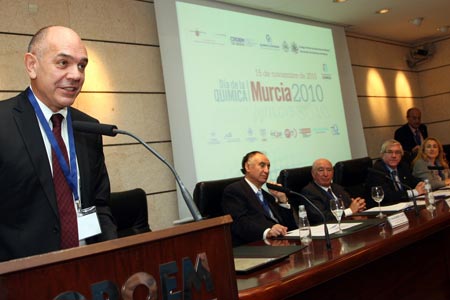
Another of his lines of investigation aims to the synthesis of polycyclic aromatic hydrocarbons related with the grafeno and the fullerenos, that are compound ‘fashionable', by like this say it. Speak us of this line of investigation and of his applications. Which problems presents the synthesis of this type of compounds?
Does some years decide to develop a rational synthesis of fullerenos open, that allowed the synthesis to scale preparativa of fullerenos with metals in his interior. Given the potential of these complexes ‘endoédricos' in science of materials, his manufacturing keeps on being ones of the aims of our work. Up to now we have achieved to close what designate eat ‘fullerenos crushed' to form spherical molecules. Another of our aims is to combine chemicals of the gold with the one of the palladium to develop simple routes that allow us prepare of rational form, chemical, nanografenos of sufficient size to emulate the properties of the grafeno.
For a time this part are more and more voices, their own among them, that warn about blatant inbreeding of universities and Spanish research centres. However, it seems that, at least for the time being, they will change much things. In your opinion, what are the consequences of this situation?
This is one of the main problems of the Spanish research for quite some time. It is not only make it virtually impossible to become Professor or researcher in a centre other than the home, but rather the ways to develop a research independent career after completing a postdoctoral stay are almost non-existent.
Arguments such as the consolidation of groups, to avoid the excessive fragmentation of the research, etc., are only alibis under which has been citing the mediocrity. The paradox that, still possible to obtain public financing, young researchers have almost forbidden access to the area of laboratory to develop new ideas. That is, at the very local level, where lies the problem. For this reason, the best talent are stifled their hopes on continuistas lines of work or are forced to emigrate. Although we are not the only country in which this occurs, the of front row in science (United States, Germany, Switzerland,) among other long ago that organized science in a way more effective and competitive.
Even more serious than the damage made to the talent, is that in the medium term will end up suffering our society, that not profitable the investment made in science and technology in recent years.
You is the Group Leader of the Institut Català d'Investigació chemical (ICIQ) of Tarragona from 2004. Tell us a little bit of this Centre, in what is unique?
I moved to the ICIQ in 2004 from a convenient situation in the academic world Spanish as Professor and Professor of investigation of the CSIC. Even so, the project of the ICIQ seemed attractive enough to sacrifice the relative comfort. After 6 years I have no doubt of having done the right thing. It is true that the ICIQ is unique in many respects.
Although visitors they can draw attention to our laboratories, what is most remarkable is the human quality and excellent level of our staff and laboratory technicians, along with the atmosphere of support and collaboration among researchers. The ICIQ guarantees full research independence, including the group younger leaders, who promotes that complex problems in collaboration address at the same time. The administrative organization is also simple and effective and there are no departments separating chemistry artificially in sub-areas.
Finally, I would like to emphasise the excellent collaboration with the Universitat Rovira i Virgili, with which we share expertise and teaching at the level of master. Although the ICIQ is unique, we would like that this not be the case. We would like to be emulated in other autonomous communities and see more centers that play to attract the best, especially to the young.
"Science should be part of the culture", it said on more than one occasion. What do you think that I could do to achieve it?
Chemistry is part of the culture, although it appears clearly in a very quiet position in the media compared to the physics and biology. We can take some of the blame, rightly, to the shallowness of these means, but we can do a lot more from the academic world. In my opinion, we should put aside that mixture of shyness and disdain with which the chemicals we inhibimos when presenting our achievements in public. We must convey the passion for one of the most living sciences and who have more impact on the everyday life of advanced societies.
There is a real problem of language which hinders communication: only insiders understand the language of the molecules and their reactions. Paradoxically, that this is the case when we remember that we are not more than chemistry and that some of the ways that we communicate are purely chemical. But, in addition, the public should know that after the discovery of new drugs and materials, are chemists who designed them and, at the level of creativity, are not behind the artists.
Profile
Antonio M. Echavarren (Bilbao, 1955) holds a Ph.d. in chemical sciences by the Autonomous University of Madrid (UAM), Professor of organic chemistry at the UAM, Research Professor of the CSIC and Group Leader in the Institut Català d'Investigació chemical (ICIQ) in Tarragona since March 2004.
His research work includes the invention of new reactions catalyzed by transition metals, especially gold and Palladium, as well as the synthesis of natural products and polycyclic aromatic hydrocarbons associated with Graphene and Fullerenes. Echavarren is also prize Janssen-Cylag of research in Chemistry organic of the Royal Spanish Chemical Society (2004) and Liebig Lecturer - Division of organic chemistry of the Gesellschaft Deutscher Chemiker (2006), among others.


